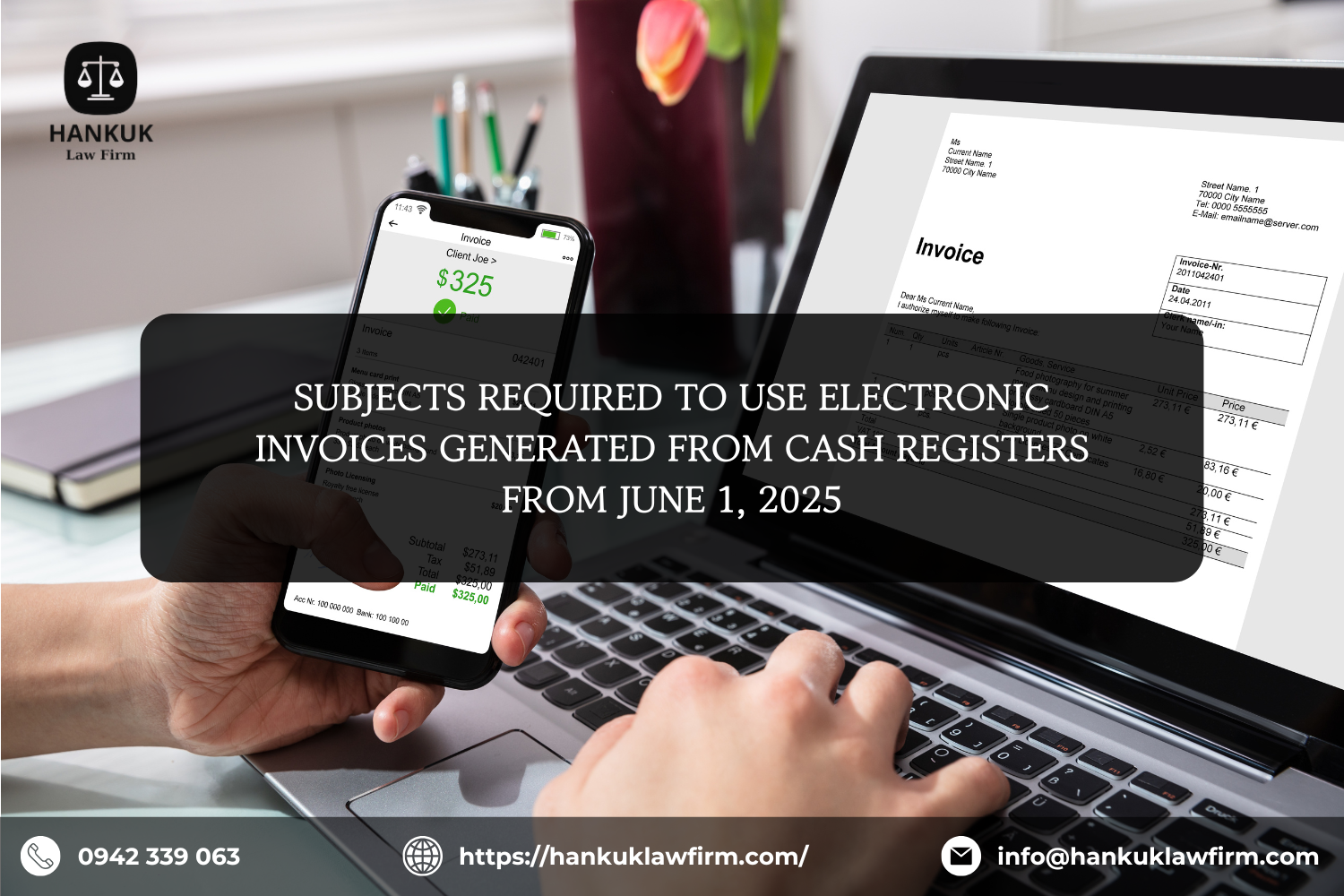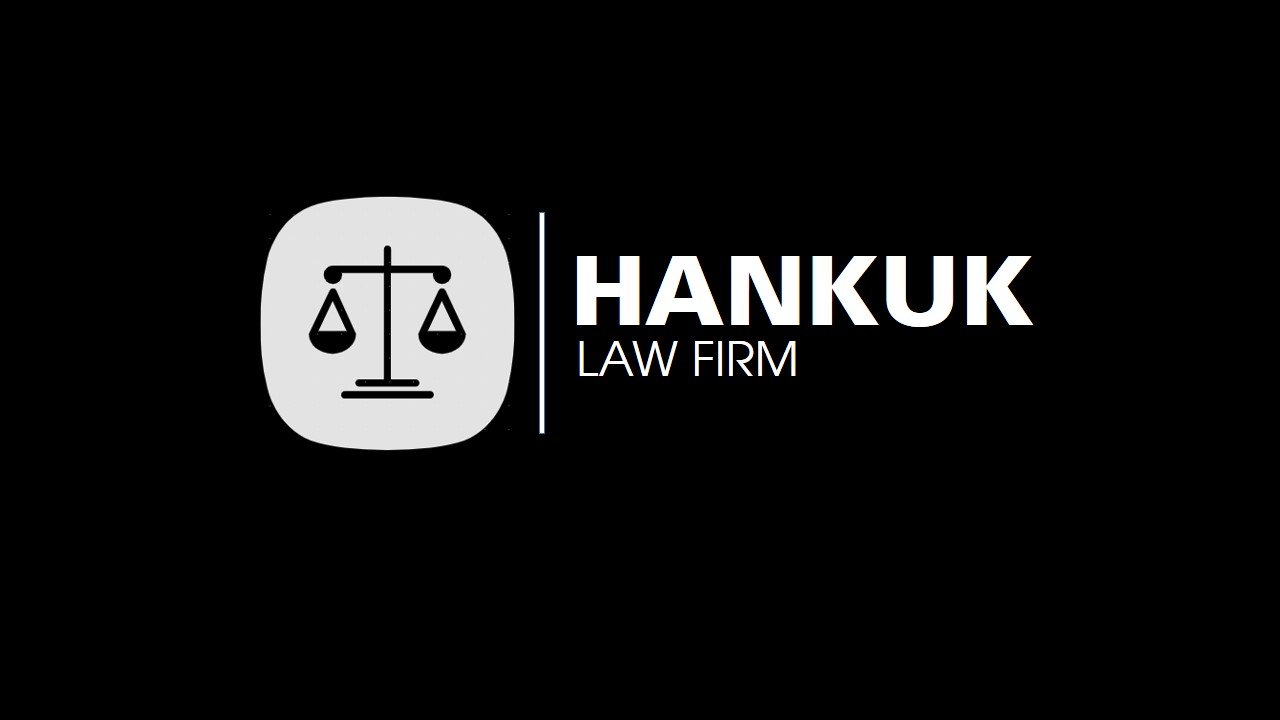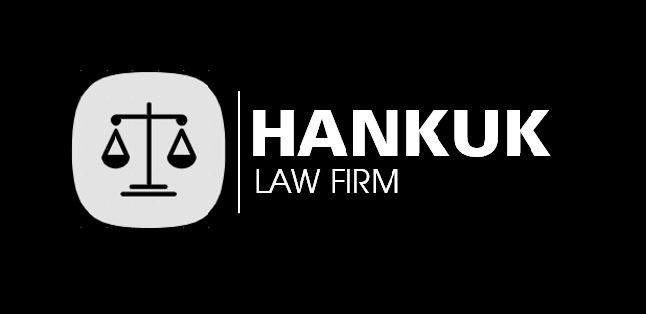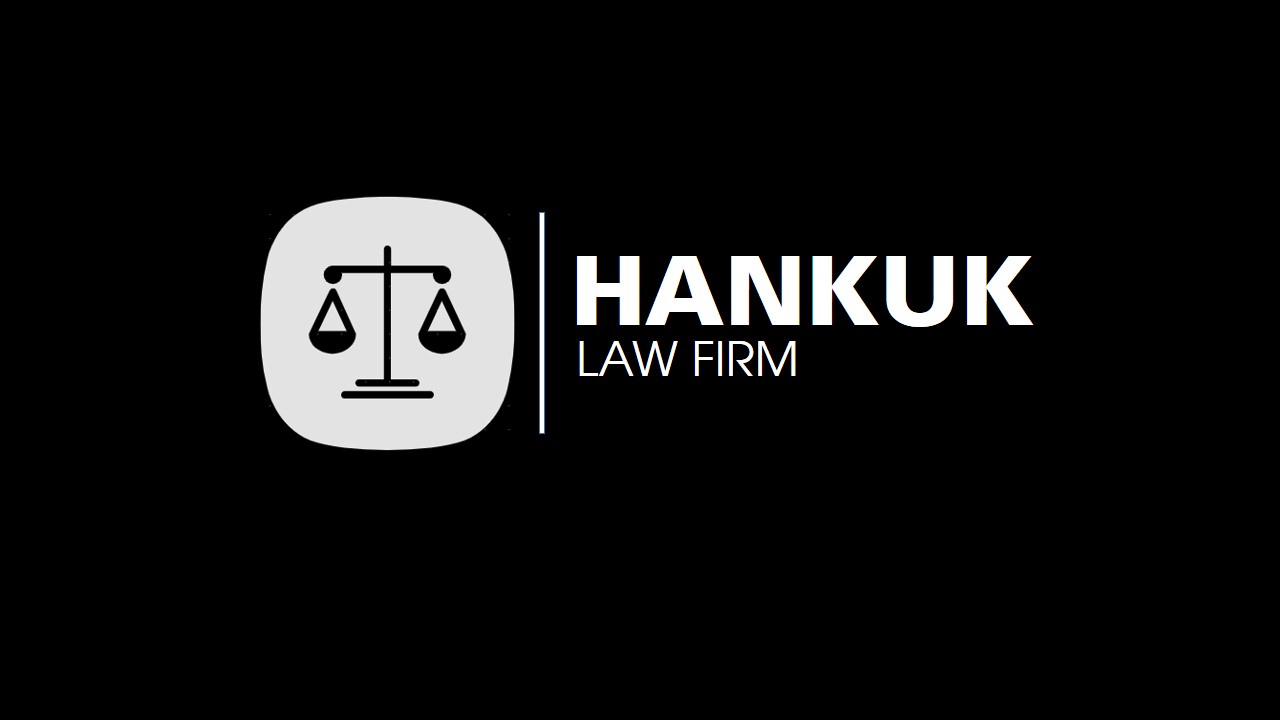SUBJECTS REQUIRED TO USE ELECTRONIC INVOICES GENERATED FROM CASH REGISTERS FROM JUNE 1, 2025
Contents
I. Legal basic
- Decree 70/2025/ND-CP
- Decree 123/2020/ND-CP
- The Law on Tax Administration 2019
II. What is an electronic invoice generated from a cash register?
According to Point a, Clause 2, Article 1 of Decree No. 70/2025/ND-CP (which amends and supplements Point c, Clause 2, Article 3 of Decree No. 123/2020/ND-CP), the definition of electronic invoices (e-invoices) generated from cash registers is as follows:
Electronic invoices generated from cash registers (with electronic data connection to the tax authority) are invoices with a tax authority’s code, or electronic data that allow the buyer to access and declare information on the electronic invoice generated from the cash register, which is created by organizations or individuals selling goods or providing services from their cash register systems, with data transmitted to the tax authority in a standardized format.
A cash register is a payment system comprising a synchronized electronic device or a system of multiple devices integrated through information technology solutions, with common functions such as calculating payments, storing sales transactions, and sales data (Clause 2, Article 1 of Decree No. 70/2025/NĐ-CP).
Electronic invoices generated from cash registers have the following characteristics:
- Automatically generated upon each transaction of goods sale or service provision.
- No digital signature of the seller is required on the invoice.
- Invoice information is directly connected to the tax authority in real time or on a periodic basis.
III. Principles to be followed for electronic invoices generated from cash registers
Pursuant to Article 11 of Decree No. 123/2020/NĐ-CP, electronic invoices generated from cash registers must comply with the following principles:
- It must be identifiable as an invoice printed from a cash register connected to the tax authority.
- A digital signature is not required;
- Expenses using this type of invoice (a copy, or verified information from the General Department of Taxation’s electronic portal) shall be considered legitimate expenses when determining tax obligations.

IV. Subjects required to use electronic invoices generated from cash registers from June 1, 2025
According to the new regulations under Decree No. 70/2025/NĐ-CP, the subjects required to use electronic invoices generated from cash registers when selling goods or providing services from June 1, 2025, include:
– Household businesses and individual businesses as prescribed in Clause 1, Article 51 of the Law on Tax Administration No. 38/2019/QH14, with annual revenue of VND 1 billion or more.
– Household businesses and individual businesses as stipulated in Clause 2, Article 90 and Clause 3, Article 91 of the Law on Tax Administration No. 38/2019/QH14, including those that meet the following conditions: Use a cash register; determine revenue and use electronic invoices with codes issued by the tax authority; meet the requirements on revenue and number of employees, and concurrently implement the accounting regime and pay tax by declaration method.
– Enterprises engaged in the sale of goods and provision of services, including direct sales of goods and services to end consumers, include:
- Shopping centers, supermarkets, retail stores (excluding the trading of cars, motorcycles, motorbikes, and other motor vehicles);
- The sectors of food and beverage services, restaurants, and hotels;
- Passenger transportation services and services directly supporting road transportation;
- Art, entertainment, recreation services, and cinema activities;
- Other personal services as prescribed in the Vietnamese System of Economic Sectors.
V. Contents of electronic invoices generated from cash registers
According to Clause 3, Article 11 of Decree No. 70/2025/ND-CP, The contents of electronic invoices generated from cash registers are specifically regulated as follows:
| CATALOGUE | CONTENT AS PRESCRIBED |
| Name | Electronic invoices generated from cash registers |
| Required contents | Name, address, Tax Identification Number of the seller
Name, address, Tax Identification Number/The personal ID number/phone number of the buyer (if required) Invoice issuance time Name of goods or services, unit price, quantity, total payment amount Tax authority code or electronic data that helps the buyer to look up and declare the invoice |
| Additional information for enterprises/business households declaring tax | If tax is paid by the deduction method, the invoice must clearly show:
Sale price excluding VAT VAT rate VAT amount Total payment amount including VAT |
| Method of sending invoices to buyers | Via SMS
Via email Via other methods such as providing a link or QR code to look up and download the invoice |
| Important notes | Buyer information is only required if requested by the buyer. |
VI. Conclusion
From June 1, 2025, the use of electronic invoices generated from cash registers becomes mandatory for many organizations, business households, and individual businesses according to the provisions of Decree 70/2025/ND-CP. This is an important step forward in the digital transformation roadmap of the tax sector, contributing to transaction transparency, enhancing management efficiency, and preventing revenue loss for the budget.
Entities subject to mandatory compliance need to promptly review their business models, prepare technical infrastructure, and register to use the correct type of invoices as regulated, to avoid violations and operational disruptions. At the same time, full compliance with the content, format, and method of invoice data transmission is also a key factor to ensure the validity of invoices, serving proper tax declaration and finalization in accordance with legal regulations.
VII. About Us, Hankuk Law Firm

■ Hankuk Law Firm – Introduction
The goal of the legal services provided by HANKUK LAW FIRM is to support businesses, investors, and people. Our organization employs skilled Korean lawyers, partners, and professionals to provide legal services to businesses related to corporations and litigation.
To support the startup process, our lawyers and staff provide a wide range of services, including business law consulting, tax and immigration law consulting, real estate services, business consulting, marketing and communications, human resources, product distribution, franchise options, etc. We provide expert advice on every aspect of your business needs.
To protect the legitimate rights and interests of our clients and achieve the best results, we provide legal advice and participate in civil lawsuits related to business, labor, marriage, family, and inheritance.
■ Contact us now

For reliable and effective legal advice, please contact HANKUK LAW FIRM now. We are committed to providing you with the best possible answers and our team of experienced lawyers has extensive knowledge in many legal fields. We are always here to provide the most competent and dedicated support, whether you are dealing with contractual issues, commercial disputes or need guidance on foreign investment. HANKUK LAW FIRM is honored to have assisted hundreds of domestic and international clients in skillfully resolving complex legal issues as their trusted legal partner. Do not let legal issues hinder your success. Let us accompany you towards legal achievement and comfort. For prompt guidance and support to ensure your rights are always maintained at the highest standards, contact HANKUK LAW FIRM now.
■ Contact Hankuk Law Firm:
| Website: http://hankuklawfirm.com/en/
FB: https://www.facebook.com/hankuk.lawfirm Tiktok: https://www.tiktok.com/@hankuklawfirm Youtube: https://www.youtube.com/@hankuklawfirm6375 Email: info@hankuklawfirm.com SĐT: 0942.339.063 |
 |

